The Cox School of Business for Working Professionals

Working professionals are facing a challenging time with the impact of COVID-19 on today’s employment landscape. In our latest installment of the MetroMBA “5 Questions” series, we speak with Jillian Melton, the Director of Admissions for the Working Professional MBA at the Cox School of Business to learn more about their program offerings for working professionals.
How does the SMU Cox School of Business programs differentiate from other offerings in the Graduate Management Education space?
“SMU Cox is a top-ranked business school in Dallas, TX with multiple degree paths for working professionals, whether early in their careers or in senior leadership roles, to earn an MBA without leaving the workforce.
SMU Cox recently launched the NextGen Cox Curriculum anchored in three pillars essential to ensuring students are well-prepared for their future careers: Leadership, Analytics, and Experiential Learning. Students not only gain technical business skills through the rigorous core curriculum, but they also develop highly sought-after leadership and analytical skills through experiential learning projects in which students consult for organizations around the world.
Outside of the classroom, students have full access to the Career Management Center for career coaching and job placement opportunities with hundreds of top hiring companies, in addition to mentorship programs and, for more experienced students, executive coaching. To further deepen business knowledge and leadership skills, students participate in seminars through the Cox School’s Business Leadership Center or one of our 25 student-run clubs and organizations.
The Cox School offers four MBA programs for working professionals:
1. The Professional MBA program offers flexible options for working professionals to earn their MBA with a concentration in one of 11 areas. With over 170 electives in areas such as finance, real estate, marketing, business analytics, and operations, students are able to determine which courses to focus on to best accelerate their career.
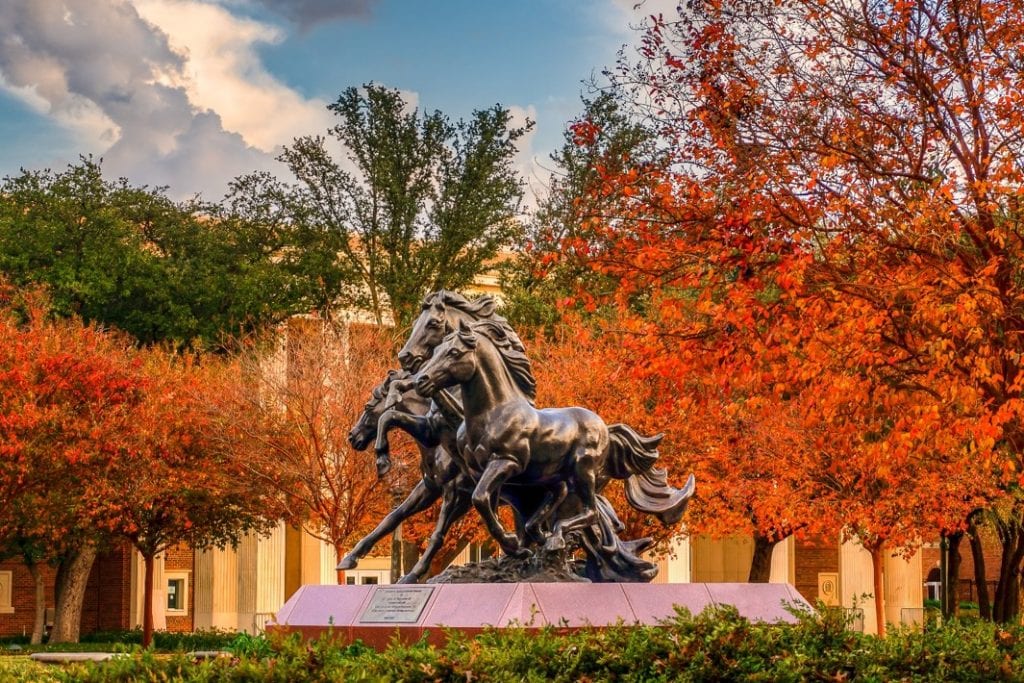
2. The Online MBA program offers the same rigor as our on-campus MBA programs, with the flexibility for students to attend classes from wherever they are. Live class sessions are held weekly, and average class size is between 15-20 students to ensure robust discussions and teamwork. Students also participate in two global 4-day immersions to gain hands-on experience during a real-time consulting engagement.
3. The MBA Direct program is designed for early career professionals with less than three years of work experience. This part-time program begins online and offers students the option of taking electives on-campus or online later in the program.
4. The Executive MBA is designed for experienced professionals to build on previous management experience through collaboration with peers in order to hone management expertise across industries and disciplines. Classes are held every other weekend, and the program includes a 10-day global consulting trip.
What is the typical profile of a student who would benefit most from the Cox School of Business MBA programs and what characteristics are your admissions team looking for?
SMU Cox is looking for students who are passionate about growing their knowledge, skills, and careers through an MBA. We are also looking for students who will contribute to the overall SMU Cox community as both students and future alumni. The curriculum is anchored in three pillars: leadership, analytics, and experiential learning. Successful candidates will have demonstrated leadership experience and abilities, are intellectually curious, and are eager to learn through hands-on work solving big, complex, and ambiguous problems. Throughout the admissions process, the SMU Cox Admissions Team wants to get to know applicants to better understand past experiences, but also how an MBA fits into an applicant’s career goals. We take a very personalized approach and fully consider the entire application prior to making an admissions decision.
What types of financial aid are available to students?
SMU Cox automatically reviews all applicants for merit-based scholarship – there are no additional steps applicants need to take in order to be considered. Merit-based scholarship awards range from $1,000 up to $15,000. Additionally, we encourage all applicants to discuss with their employers what tuition assistance programs may exist, whether formal or informal. Finally, all students should apply for financial aid to help cover the cost of tuition. The process is simple and all students, regardless of need, are eligible to apply.
How does the Cox School of Business assist in finding job opportunities and how does your program enhance a student’s profile as a job applicant?
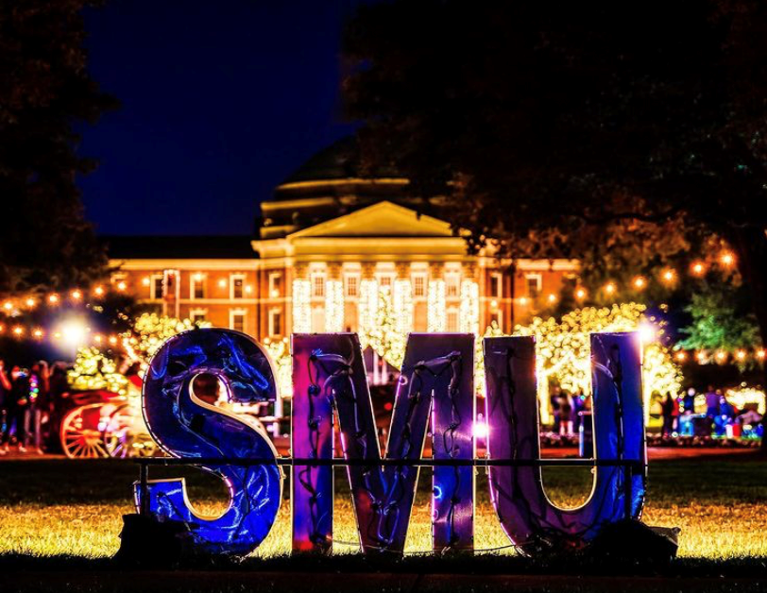
When students join SMU Cox as an MBA student, they immediately have support from the Career Management Center not only as a student but for the rest of their career as an alumnus of the program. Each student has a dedicated Career Coach who works with them during the program on their custom job search and career development plan. Students in the Professional MBA, Online MBA, and MBA Direct programs take the Managing Your Career course which covers topics such as search strategy, resume and cover letter writing, networking, elevator pitch, interview techniques, and salary negotiation. This course is designed for students to be ready to participate in all on-campus recruiting activities. Executive MBA students work with assigned career coaches for executive coaching and a plan tailored to students’ unique career goals and needs.
Additional programming through the Career Management Center includes skills workshops needed for landing a job in specific industries such as consulting, CPG, or investment banking; industry roundtable nights for learning about and networking in different industries; the Associate Board Mentorship program; and career treks to visit top companies in different cities.
Each year, hundreds of companies recruit for MBA hires on campus at SMU Cox, and all students are encouraged to fully utilize these opportunities and resources. Some of the top hiring companies include JP Morgan Chase, PepsiCo, Amazon, American Airlines, PWC, AT&T, CBRE, and EY.
At SMU Cox, the majority of our Working Professional MBA students are looking to make a career change whether that be industry, function, or company. One hundred percent of our students want to grow and accelerate their careers with their MBA, and the Career Management Center is poised to help all of them achieve their goals.
What is one insider tip you can provide prospective applicants about applying to the Cox School of Business?
Get to know the admissions staff! Throughout the process, we want to get to know applicants and also share why SMU Cox is such a fantastic school to study business. Attending events, emailing or calling us, or setting up a 1:1 office hour appointment is a great way to learn more about the Working Professional MBA programs and also showcase interest in the program.
Bonus Questions
Although many schools are providing remote or hybrid learning, we asked Jill about the best locations for students once classes are fully back to campus:
What is one restaurant every student must visit and why?
Bubba’s is an SMU institution serving southern comfort food breakfast, lunch, and dinner in a diner atmosphere. The fried chicken is some of the best in Dallas, but I love the biscuits most!
Where is the best cup of coffee on campus?
Herb’s House Coffee is just off campus and is a must-stop for Working Professional MBA students looking for a great cup of coffee and a good meeting space for small group projects. They even have conference rooms for rent if you need a more structured work space. I recommend the Lavender Latte.
What is the best ‘hidden secret’ on campus?
The Native Texas Park behind the George W. Bush Presidential Center, located on SMU’s campus and within easy walking distance of the Cox School, is a best-kept “hidden secret.” SMU is fortunate to be home to the Bush Presidential Center, including the Presidential Library and Museum. One of the most overlooked parts is the 15-acre urban oasis outside the Center where visitors can walk through native Texas environments, including the much-loved Bluebonnets each spring.
5 Questions with the SMU Cox Assistant Dean of Graduate Admissions
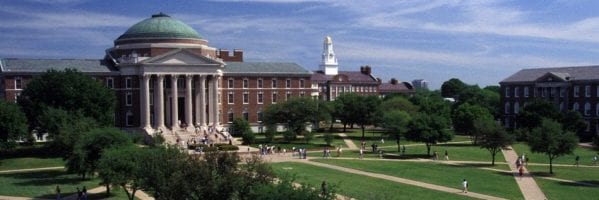
In our latest installment of the MetroMBA “5 Questions” series, we speak with John Roeder, Assistant Dean of Graduate Admissions at SMU’s Cox School of Business. He talks with us about inside details of the MBA program, pre-admissions tips, and the school’s beautiful campus.
Can you tell me something about the SMU MBA that I cannot learn unless I actually take part in the program?
“SMU Cox fosters a highly collaborative learning environment and connections to a network of 42,000-plus alumni around the world. From day one, SMU Cox MBA students join this community—a highly connected, active, and engaged group of students, alumni, and corporate partners that extend across the Dallas business community and beyond.”
What are you most excited about when it comes to the future of SMU Cox?
“The future of SMU Cox is bright and exciting. The Cox School is refreshing the curriculum, and infusing new elective courses into the MBA program to reflect the evolving needs of businesses today. Plus, we’re located in the heart of Dallas, a city on the rise! In fact, Forbes ranked Dallas the #1 best big city for jobs two years in a row.”
YOU MAY ALSO LIKE: Real Humans of the SMU Cox School of Business
What parts of the MBA program should more students know about before starting their graduate school career?
“Each year, applicants impress us with the high level of research they do on their own. Here are a few things we encourage students consider when searching for the right program fit.
- Research the curriculum: Is it flexible, customizable? SMU Cox offers four different paths to the MBA. Whether you pursue the degree as a full-time student or a part-time student, you have the flexibility to customize the coursework and choose electives to meet your needs.
- Explore experiential learning opportunities: There are incredible opportunities to gain technical knowledge and hands-on experience both inside and outside the classroom. At SMU Cox, all our MBAs have an opportunity to gain international business perspective through our Global Programs.
- Identify companies or industries where you have an interest in working: Research your target business school’s alumni presence and recruiting relationships with those companies. At SMU Cox, we have over 100 corporate partners and hiring companies actively engaged with our students.”
What do you think is the most important part of the pre-admissions process?
“A few things can really help a candidate stand out during the application process. At SMU Cox, we look for students who have demonstrated a drive for impact, both personally, and professionally. So, when building your application, take the time to sharpen your resume, and highlight quantifiable achievements. Leverage the essays to showcase your personality and motivations for pursuing the MBA. And finally, let us get to know you! Whether you join us at an information session, a coffee-chat, or simply set-up time to meet one-on-one with a member of our Admissions team, we’d like to get to know you personally.”
What is your favorite part of the SMU campus?
“One of the best aspects of our beautiful, tree-lined campus is its proximity to downtown Dallas. Our campus is located just miles from corporate headquarters, a flourishing art and museum district, a world-class sports arena that houses our local NBA and NHL teams, acres of outdoor parks and trails, and sits walking distance from both locally-owned and nationally acclaimed restaurants.”

The Professional Grounds Management Society has previously awarded SMU the prestigious Grand Award for its picturesque campus / Photo via smu.edu
Click here for more information on admissions at the SMU Cox School of Business.
Real Humans of the SMU Cox School of Business
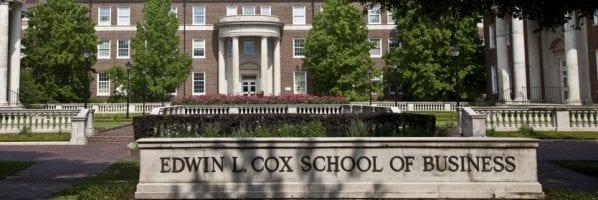
After 100 years, one can expect a few changes.
The Southern Methodist University Cox School of Business, nearing it’s centennial celebration, is a perfect test-case for how much change can mean. Founded in 1920 as the Department of Commerce, the Dallas metro business school has gently evolved from a modern Methodist research beacon into one of the most transformative schools in Texas.
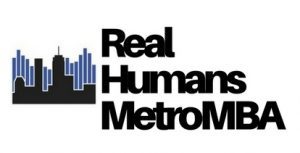
With over 11,000 students at SMU, including 5,170 graduate students, the Cox School of Business hosts nearly 600 MBAs in its various programs. For any Cox student, one of the definitive advantages of the business school is the advantageous proximity to Dallas’ thriving business community. Ten companies in the metro land within the Fortune 500 ranking. Among the group, four companies—Exxon Mobil, AT&T, Energy Transfer Equity, and American Airlines Group—land in the top 100, with two in the top ten. With high national regard, including a top 50 ranking for the school in U.S. News & World Report, plus the bevy of major companies as neighbors, these factors can seem overwhelmingly beneficial to a successful career.
When talking with members of the SMU Cox School of Business Professional MBA class, however, the allure of the program went beyond the obvious career benefits that Dallas can offer. For any well-regarded business school, the makeup of the class can seem familiar. The average GMAT for the PMBA Class of 2019 is 613. The GPA is 3.3. Most of the group has about five years of prior professional experience before enrollment. But just going off the bare statistics hardly tells the entire story.
To get a greater understanding of the SMU Cox School of Business Professional MBA class, we spoke with several current students, including a self-described “Army Brat,” a former law school student, and a consultant originally from Kathmandu, along with a handful of other future grads. Read on to see their stories and what the future may hold for life after an MBA.
Finding the Best Return On Investment for Your MBA: Dallas

Choosing the right MBA program can feel overwhelming. With nearly 800 accredited business schools in the United States, the idea of wading through the information on every program is intimidating to say the least. A variety of features, such as a school rankings, internship opportunities, and an extensive alumni network may be huge factors where you choose to earn your master’s. But one of the most important variables to consider is a program’s return on investment (ROI). It is essential to pick a school with an enviable ROI, as this will ensure that the time and money you dedicate to earning your MBA are not for naught. Given the considerable cost of higher education, it is important to attend the school that will give you the most bang for your buck.
The Best Dallas MBA Return on Investment
Cox School of Business – Southern Methodist University
At the SMU Cox School of Business, students can expect an admirable rate of return on the cost of education. The tuition rate of $45,976 per year for the two-year program is among the most enviable in the U.S. The average graduating salary for MBA’s was $96,587, which is more than double the yearly cost of tuition. This school is also ideal for students hoping to global perspective, as students at Cox have the opportunity to participate in an international MBA exchange program, which allows them to continue their education in Latin America, Europe, Australia, or Asia. Simply put, SMU Cox doesn’t just provide one of the best Dallas MBA return on investment opportunities, but one of the best in the country overall.
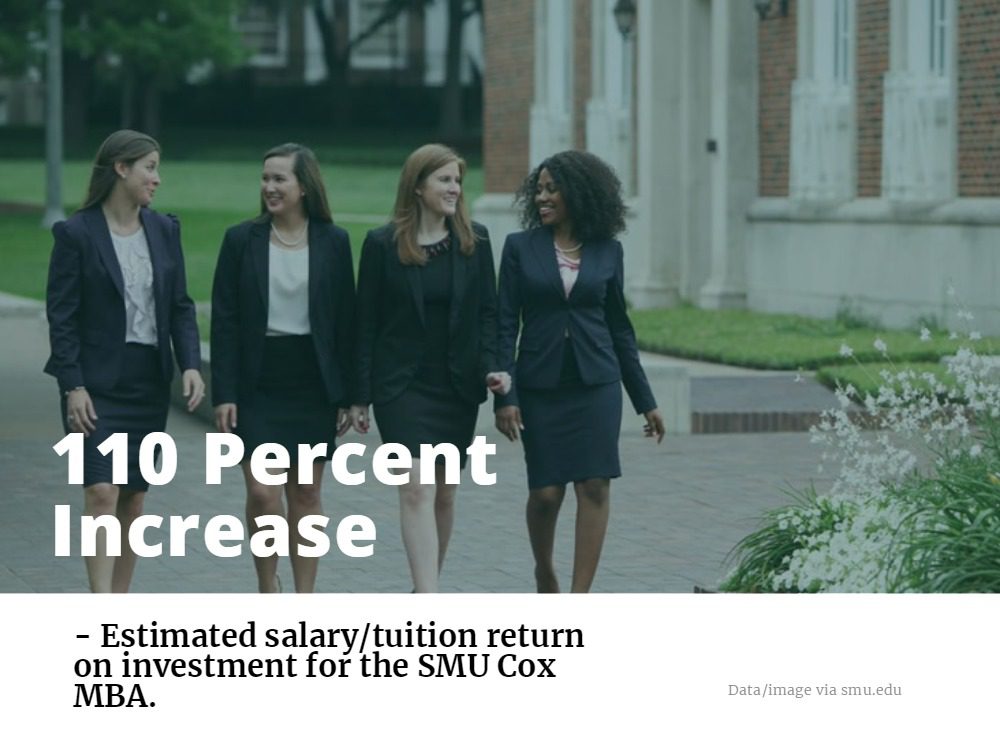
Hankamer School of Business – Baylor University
Baylor’s Hanker School of Business is another excellent option for students seeking a respectable ROI. The full-time program can span from 16 to 21 months, with a tuition of $20,597 per semester (over about three to four semesters, depending on course load and core requirements met during undergrad). According to Hankamer’s website, the average starting salary for MBA graduates in 2017 was $73,314. Additionally, Hankamer’s Career Management team is nationally-ranked, and can provide extra support for students seeking help with job placement.
McCombs School of Business – University of Texas at Austin
The MBA program at the McCombs School of Business currently costs $30,750 per semester, bringing the total tuition to about $123,000. The cost will is steeper for non-residents (closer to $189,000). Though the cost of tuition at McCombs is nothing to sneer at, neither is the reward. In fact, the most recent MBA class had an impressive average starting salary of $117,068. McCombs, which is also one of the largest business schools on this list, also has an extensive alumni network, which includes the CEOs of Southwest Airlines (Gary C. Kelly) and Heinz (William R. Johnson).
Naveen Jindal School of Management – University of Texas at Dallas
Like many of the schools we mentioned on this list, the Naveen Jindal School of Management has a solid track record when it comes to ROI. Tuition for the full-time MBA program is just $32,998 for in-state residents and $64,332 for non-residents. In addition to the reasonable cost, the school’s website states that 80 percent of students receive scholarships that cover an average of 45 percent of the total program cost. In 2017, U.S. News & World Report stated that the school’s MBA program, “… had the highest salary-to-debt ratio among ranked business schools.” According to the article, average starting salary for graduates (of those who were employed within three months of graduation) was $86,644.
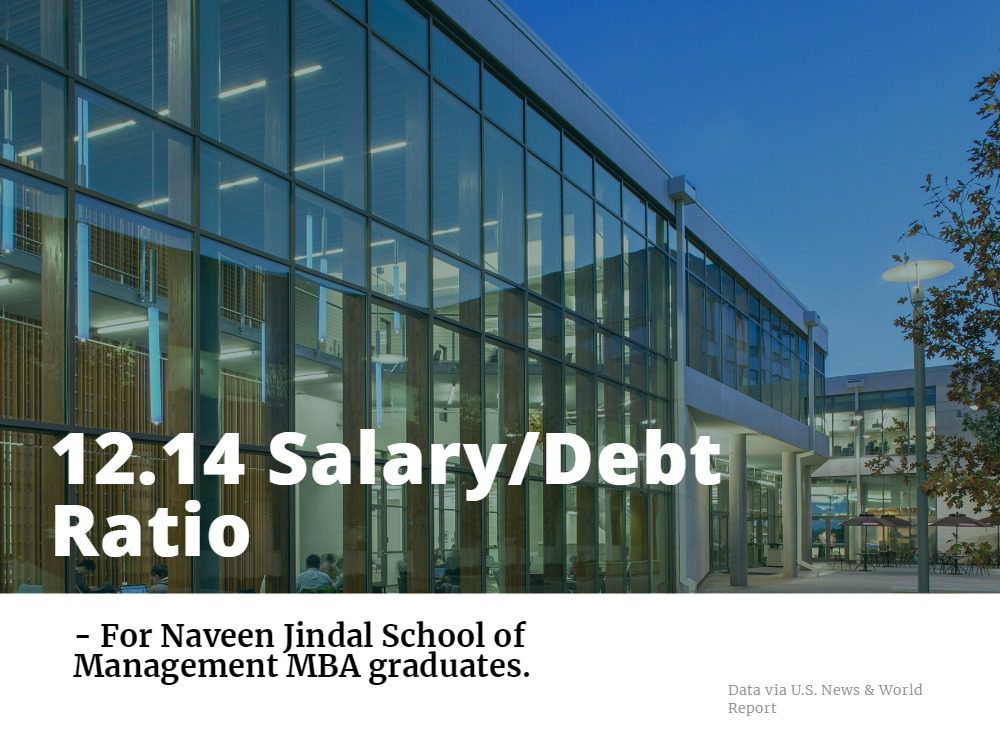
Neeley School of Business – Texas Christian University
At TCU’s Neeley School of Business, the average starting salary for the most recent graduates of the full-time MBA program was $93,093, surpassing the total tuition of $88,020. Moreover, Neeley boasts a 92 percent employment rate 90 days after graduation. Recent graduates have taken jobs at renowned companies like Ernst & Young and IBM. In addition to standard core classes, Neeley introduces a great deal of experiential learning into the curriculum. At the end of their first year, students participate in an Integrative Project that offers them the opportunity to apply their skills to real-world business obstacles via a week-long simulation.
Inside Dean Matthew Myers’ Plans for the SMU Cox School of Business
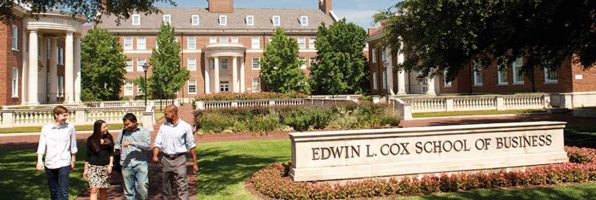
On August 1, 2017, Matthew Myers became the ninth dean of the Southern Methodist University Cox School of Business. As the former dean of Miami University’s Farmer School of Business in Oxford, Ohio, Dean Myers comes to Cox with plans to build on the school’s current strengths and enhancing its offerings.
In a Cox Today article titled “The Dawn of a New Dean,” SMU Cox dives into Myers’ plans in a detailed interview. Here’s what he had to say.
Joining Cox
According to Myers, the most frequent question that he’s asked is, “Why Cox?” He explained that he was looking for an institution that knew its place in higher education and had an established identity. It was also important to love the city where the school was located, and he and his family were immediately drawn to Dallas.
“Dallas has a robust economy with people willing to invest in Cox and SMU,” he said. “You cannot have a world-class city unless there is a world-class university, and a world-class university cannot exist without a world-class business school.”
Investing in Teaching and Research
For Myers, there are many assets to the Cox School, and one of the greatest is its faculty and staff, in whom he plans to invest heavily to enhance the school’s research reputation.
“If you look at the top 30 business schools, the common denominator is excellence in research reputation. Teaching and researching complement each other—rather than detract from each other, as some believe.”
In particular, Myers will focus on improving research in the areas of global marketing and strategy issues, especially since crossing organizational boundaries has been a major theme in Myers’ career.
Investing Globally
Myers also hopes to bring his penchant for global business to SMU Cox. “We do not have a choice in business education but to be globally oriented, not just geographically,” he said. “The practical and relationship side of global business, including neighboring countries such as Mexico, should be a focal point.”
Myers even talked about how the NAFTA issue is salient for Cox both in terms of its research and topics of discussion in the classroom. This type of contemporary commentary about global issues is what he wants to bring to SMU Cox.
Investing in Students
Myers is also interested in enhancing the use of technology and innovation in the curriculum for each of the school’s degree programs. “That’s where the growth sectors are in the global economy,” he explained. “Cox graduates should have a place in those sectors after graduation no matter what their major is. It’s certainly something to focus on in the next five to 10 years.”
Dean Myers also plans to increase student exposure to the local and global business markets to better prepare them for the job market post-graduation. “Students have numerous choices in universities, and it’s very competitive,” he wrote. “The strategic relationships we have with the business community are important, as well as being attuned to growth opportunities. Many students want the option to work in entrepreneurial or nonprofit businesses, or they may want to work in London or Seoul with global firms.” SMU Cox will aim to provide opportunities that fit each student’s wants and needs.”
Investing in Partnerships
This limited development time also motivates Dean Myers to enhance SMU Cox’s partnerships with corporations and initiatives in the Dallas area. He explained that he’s interested in Dallas’ potential particularly for start-up incubators, venture capital, and entrepreneurship. “I want to understand how we can be involved,” he said.
Myers already feels that the Cox and Dallas communities are energetic, but he wants to enhance the strong academic relationships even further to leverage opportunities for students. For example, he noted that many top recruiting firms are cutting back to just a handful of university relationships, and he wants to ensure that SMU Cox stays in the mix.
“We want to make sure we are inside that play with all of the major companies, such as American Airlines and GE, and with startups, too,” he said. “We think we are there already, but it’s competitive and we have to modernize.”
About Dean Myers
Myers began his career in academia in 1997 after earning his Ph.D. in marketing and international business from Michigan State University. He became a professor at the University of Tennessee, where he led the Marketing and Supply Chain Management Department at the Haslam College of Business from 2008 to 2010. From 2010 to 2013, he served as the associate dean of executive education at Haslam. During that time, he was recognized three times as “the outstanding faculty member for MBA programs” and was responsible for launching the global Executive MBA program, which partners with ESSEC Business School in Paris and Central European University in Budapest.
In 2014, Myers became dean of Miami University’s business school. Of his appointment, he said, “The extension to the dean role was very fluid and natural. Giving the external nature of work and its greater connection to business, it was an area in which I could contribute.”
This article has been edited and republished with permissions from our sister site, Clear Admit.
Part-Time MBA Battle: Houston v. Dallas

Among the bustling metros of the Lone Star State, Dallas and Houston are the biggest. Locals from the Houston and Dallas metros are die-hard about their towns, and their business schools take their MBA programs seriously. Both cities offer plenty of part-time options to prospective MBAs, so let’s take a deeper dive.
Location
While Houston and Dallas are only about four hours away by car, each metro offers completely different living experiences. As far as weather goes, if you dislike humid climates, Dallas may be the location for you. If you love being by the water, Houston may be up your alley—though the city, unfortunately, is more at risk for tropical storms and hurricanes.
Houston is statistically the more expensive city to live in, but not by a significant margin. According to Numbeo, a database of user contributed data about cities, you would need around $4,242 in Houston to maintain the same standard of life that you can have with $4,000 in Dallas, assuming you do not own a home. As far as entertainment goes, it’s really a tie: Both metros boast great restaurants, shopping, sports entertainment, and nightlife.
Here are a couple more quick stats comparing Houston and Dallas, courtesy this awesome infographic from SpareFoot:
- Houston is the 5th best US city for good jobs, Dallas ranks 18th.
- Houston is the 5th best US city for job seekers, Dallas is 6th.
- Dallas has the 13th lowest unemployment rate in the US, Houston is 18th.
- Dallas has the 9th most affordable housing marketing in the US, Houston is 8th.
Not every MBA candidate can manage a full-time degree program. So many business school students continue to work throughout their studies, balancing a job and graduate school through a part-time MBA program. Many of these programs take place in the evenings and on weekends, allowing for flexibility along with continued professional growth.
Dallas Part-Time MBA Programs
The following schools in the Dallas metro offer part-time MBA programs:
- Cox School of Business – Southern Methodist University
- Naveen Jindal School of Management – University of Texas at Dallas
- Neeley School of Business – Texas Christian University
- University of North Texas College of Business
- University of Texas at Arlington College of Business
The Southern Methodist Professional MBA features a flexible and modular curriculum that students can customize to their learning and future career goals. Students have the option to choose a concentration and a minor from nine subject areas, including: accounting, finance, general business, information technology and operations management, management, marketing, real estate and strategy, and entrepreneurship.
The estimated total cost of the aforementioned Professional MBA program is $93,696. This figure excludes costs such as books, materials, housing, or transportation. However, approximately 60 percent of students receive some form of financial aid, either need-based or consumer loans.
The Professional MBA program at the Naveen Jindal School of Business consists of taking two classes each semester, and classes are usually offered Monday-Friday from 4 to 10 p.m. The program is offered three different formats: a Evening Cohort, Flex, and Online. The Evening cohort option can be completed in 24 months, and allows the entire intake to experience the 30 required classes together. The Flex program lets students finish their degree on their own schedule, online and on campus. Similarly, the Online MBA offers plenty of scheduling options, but a limited choice of electives and concentrations.
Tuition costs depend on the amount of courses taken per semester and which track students are enrolled in. At UT Dallas, students pay lower per credit when taking more classes per semester. The estimated cost for tuition and fees for in-state residents in the Evening PMBA program is $42,347, and $78,449 for non-residents and international students. Tuition and fees for resident students in the online program is estimated at $49,531, with non-resident tuition at $84,016. Scholarship opportunities are available.
The Professional MBA at the Neeley School of Business meets twice a week in the evenings. The cohort-based program that can be completed in as little as 24 months or as many as 33 months—the amount of time it takes to complete the program depends on how students schedule their elective courses.
One year of the Texas Christian Professional MBA program costs an estimated $33,090, which includes tuition and other program fees. Books and other course materials are estimated at about $1,000.
Students in the University of North Texas MBA program have the option of taking courses on a full-time or part-time basis, and can earn a MBA degree in such areas as finance, health services management, marketing, logistics and supply chain management, organizational behavior and human resource management, strategic management, or business studies. Students completing the MBA in business studies also have the opportunity to complete a concentration in international business, library science and technology, real estate, or sustainability.
The UT Arlington Professional Cohort MBA structure is created for experienced professionals who want to continue to work full-time and follows the same 45-credit hour curriculum as the MBA flexible structure. The cohort structure allows students to complete courses in accelerated five or eight-week sessions, which allows students to complete their MBA in 24 months. This format is only offered at the Fort Worth campus. The estimated cost of the MBA program at the University of Texas at Arlington College of Business is $25,382.
Houston Part-Time MBA Programs
The following schools in the Houston metro offer part-time MBA programs:
- C.T. Bauer College of Business – University of Houston
- Cameron School of Business – University of St. Thomas
- Jesse H. Jones School of Business – Texas Southern University
- Rice University – Jones Graduate School of Business
- University of Houston – Downtown
The University of Houston Professional MBA program is a flexible program that takes 22 months to complete and consists of 48 credit hours. Students must complete 21 core credit hours and 27 elective credit hours.
Tuition costs at Bauer are estimated at $42,000 for Texas residents, $66,600 for non-resident students, and $72,000 for international students. Costs can change depending on how many classes a student is taking and their student status MBA students can get financial assistance in the form of student loans and scholarships, such as the MBA Bauer Excellence Scholarship. Students can receive up to $10,000 per year, qualify for in-state tuition (for nonresidents) and receive a two-year subscription to The Wall Street Journal.
The Cameron School of Business offers a flexible MBA that holds classes on the weekends and in the evenings. Students in the MBA program at Cameron are required to complete 36 academic hours: 27 hours are in core course and nine credit hours are elective courses.
The cost of the Cameron School of Business MBA program is $1,163 per credit hour. Students taking eight or fewer credit hours per semester are required to pay a $47 activity fee. Those students taking nine or more hours are required to pay $82. Students must also pay a $100 new graduate student fee and an $80 technology fee. Students are required to pay all fees every fall and spring semester.
The Texas Southern MBA program at the Jesse H. Jones School of Business provides a general management education to students who are looking to advance their current careers in business management, and can be taken in a full-time or part-time schedule. Part-time program students can complete their MBA degree over a flexible amount of time, depending on their availability to complete courses. All students complete courses over the fall, spring, and summer semesters.
The Jones MBA costs about $7,130.38 a year for in-state residents and $13,700.38 a year for out-of-state folks. Other fees such as room and board, transportation, books and other personal expenses are not factored in the cost of the program.
Rice University’s MBA for Professionals is a flexible program that offers an evening or weekend option to allow students to maintain their current work schedules. The traditional professional MBA is held in a lock-step format while the Extended Professional MBA program holds classes two evenings a week during the first semester and one evening a week after that. Students in this program can extend their education for three years or more, up to five, in order to better fit with their schedule.
The current tuition cost is $101,500 for the Evening and Evening Extended programs and $105,500 for the Weekend program. The tuition covers the complete 22-month schedule of coursework and is billed in 25 percent increments over four semesters.
The University of Houston Downtown part-time MBA can be completed in two or three years. Classes are offered in a hybrid form, with some classes taking place on campus and others online. Students may elect to pursue a “soft start” to their MBA, where students pursue their concentration classes first, or a traditional-start MBA students, where they take core classes the first year, followed by concentration classes in the second year.
The school also offers a three-year path to an MBA where students work on their concentration the first year and then take the core classes in the second and third years, or elect to pursue a traditional start by taking core classes in the first two years and concentration courses in their third year.
At $532 per credit hour for in-state students, tuition for a UHD MBA varies depending on the concentration. Students concentrating on finance, human resource management, leadership management, or business development/sales management will pay $21,840. Concentrations in supply chain management, international business or accounting cost $23,940. An MBA with a general management concentration costs $18,088. Out-of-state students pay about $28,300 and out-of-country students pay around $28,480.

